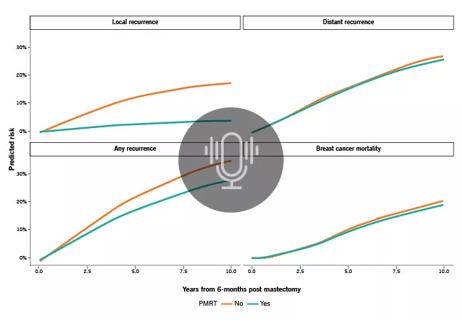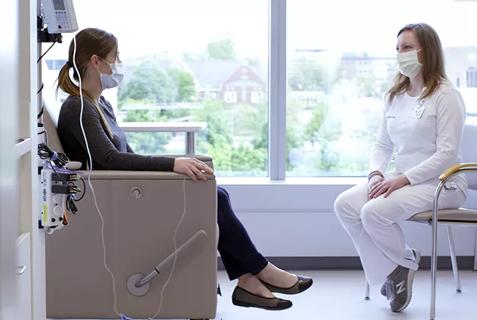Use of GLP-1s and improving cardiovascular health lowers risk of hematologic malignancies

Podcast content: This podcast is available to listen to online.
Listen to podcast online (https://www.buzzsprout.com/2241774/17036587)
Surprising Benefits of GLP-1s podcast
Compared to insulin, use of GLP-1 lowered the risk of hematologic cancers by 50-55% according to a large retrospective study conducted at Cleveland Clinic. This is a powerful example where bringing together cancer, cardiovascular disease and metabolic health disciplines holds considerable promise for reducing the risk of many diseases.
“Recently, data showed decreased risk of 13 obesity-related cancers by using GLP-1 agonists, but there wasn't a whole lot of data about this risk for hematological malignancies,” says Director of the CHIP Clinic at Cleveland Clinic Abhay Singh, MD, MPH.
In a recent episode of Cleveland Clinic’s Cancer Advances podcast, Dr. Singh discussed:
• The mechanisms that promote cancer risk in patients with diabetes
• The size and scope of the patient database studied
• The importance of improving metabolic health
Click the podcast player above to listen to the episode now, or read on for a short edited excerpt. Check out more Cancer Advances episodes at clevelandclinic.org/podcasts/cancer-advances or wherever you get your podcasts.
Excerpt from the podcast:
Dale Shepard, MD, PhD: We oftentimes have this realization that diabetes and obesity have a really strong relationship for solid tumors. What do we know about diabetes and hematologic malignancies?
Abhay Singh, MD, MPH: So not a whole lot. A lot of work has come from solid cancer and obesity data. And then the thought process there being obesity, being a chronic low-grade inflammation state, leads to immune dysregulation and probably onset of several solid cancers.
There was data out of Cleveland Clinic where they looked at patients with obesity, and compared those who underwent bariatric surgery and those who did not. They found that just having that cardio metabolic reversal through bariatric surgery, their risk of cancer decreased; solid cancers primarily.
Dale Shepard, MD, PhD: You mentioned about [obesity and] metabolic dysfunctions. Do we have any idea what a mechanism might be? You mentioned inflammation and solid tumors. Do we think inflammation has the same role for hematologic malignancies?
Abhay Singh, MD, MPH: I think most of these things we're still learning, but there are similar mechanisms at play. I think low-grade inflammation and immune dysregulation play a key role and then the bone marrow microenvironment is so important to have healthy cells. And if the bone marrow microenvironment is disturbed, through altered cytokine profiles leading to immune dysregulation can in turn lead to hematological malignancies. But these are all provocative thoughts, mechanisms that are in hypothesis state, but none [have been] proven so far.
Dale Shepard, MD, PhD: So we shifted with these [GLP-1] drugs, from diabetes to weight loss. Are we going to be doing cancer prevention now?
Abhay Singh, MD, MPH: Cancer prevention certainly is something that should be explored within the setting of GLP-1 agonists. But, in general, I think the mechanism that promotes this decreased risk of any sort of blood cancer is improved cardio metabolic health. And there are other ways to get to cardio metabolic health as well. Healthy living exercise, diet, and other things.
Advertisement
Cleveland Clinic is a non-profit academic medical center. Advertising on our site helps support our mission. We do not endorse non-Cleveland Clinic products or services. Policy
Advertisement

Genetic variants exist irrespective of family history or other contributing factors

Slower drug elimination from the body among females may impact safety and efficacy

Integrated program addresses growing need for comprehensive cancer care among adolescents, young adults and adults under 50 with early onset cancers

Study demonstrates potential for improving access

Approach could help clinicians identify patients at an increased risk of progression who could benefit from more aggressive treatment

Gene editing technology offers promise for treating multiple myeloma and other hematologic malignancies, as well as solid tumors

Optimized models can personalize predictions for patients with prostate, breast and other cancers

Majority of 1,000 patients seen in 2022 discharged home